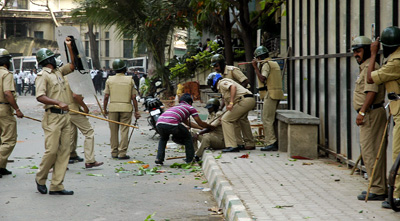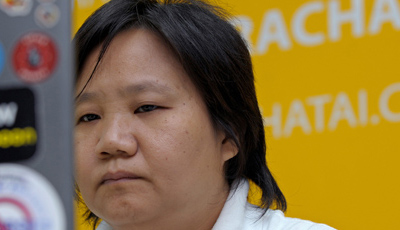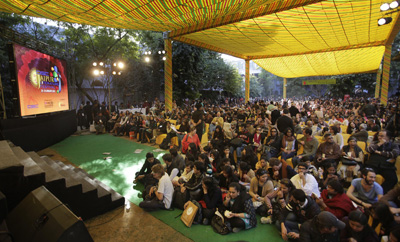
In Bangalore, journalists attacked outside courthouse
New York, March 2, 2012–Ten Indian journalists were reported injured today after being attacked by a group of lawyers outside a court in the city of Bangalore, according to news reports. The Committee to Protect Journalists condemns the attack and calls on authorities to conduct an immediate investigation.

Attacks on the Press in 2011: Regulating the Internet
Legislation for Internet security can quickly turn into a weapon against the free press. Cybercrime laws are intended to extend existing penal codes to the online world, but they can easily be broadened to criminalize standard journalistic practices. By Danny O’Brien
Attacks on the Press in 2011: India
Although the motives remained unconfirmed in late year, the murders of Chhattisgarh’s Umesh Rajput and Mumbai crime reporter Jyotirmoy Dey reminded colleagues of the risk of violence. India remained on CPJ’s Impunity Index, a ranking of countries in which journalists are murdered regularly and authorities fail to solve the crimes. Violent clashes between insurgents and…
Old issues, new debates on Internet freedom in India
Just how free should the Internet be in India? And whose job is it to police the Web? Two recent court cases turn on these questions and, more specifically, whether Internet companies have a responsibility to filter content. In a country where Internet usage is growing exponentially, but where the scars of communal violence, terrorism,…

India: Let us in!
In 2005, we deliberately violated the immigration laws of India. We broke the law by producing a documentary film even though we had entered the country on a tourist visa. We broke the law because we wanted to show that Scandinavian companies were in violation of many other laws in India.
What’s behind India’s Internet censorship?
We have been posting a lot about the challenges facing the Internet in India recently–see Mannika Chopra’s “India struggles to cope with growing Internet penetration.” On Tuesday, Angela Saini, a guest blogger on The Guardian’s Comment Is Free site, posted “Internet censorship could damage India’s democracy,” with the subhead “Google and Facebook have been asked…

India’s challenge: Intolerance vs. intellectual freedom
Because of criticism from Hindu fundamentalists, the showing of a documentary by filmmaker Sanjay Kak at the Symbiosis College of Arts and Commerce in Pune has been indefinitely postponed. The conservative student organization Akhil Bharatiya Vidyarthi Parisha protested Kak’s film, “Jashn-e-Azadi” (How we celebrate freedom), which is critical of the Indian army’s role in Kashmir.…
Can an Indian cartoonist be barred from mocking the state?
The case of a cartoonist charged with treason and offending India’s national sentiments reflects a growing debate over what constitutes freedom of expression in India. His accusers argue that while it is permissible to make fun of politicians, you cannot make fun of the state. Not everyone agrees.